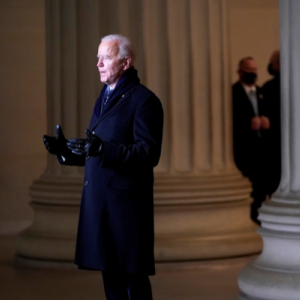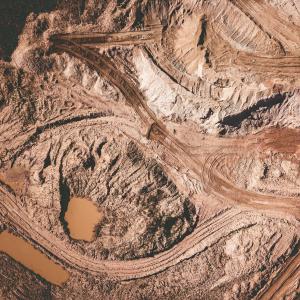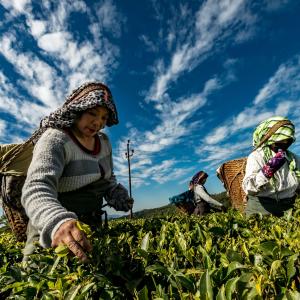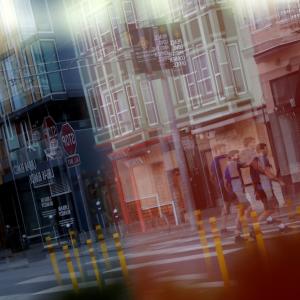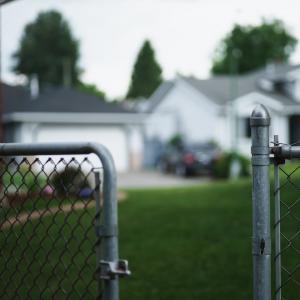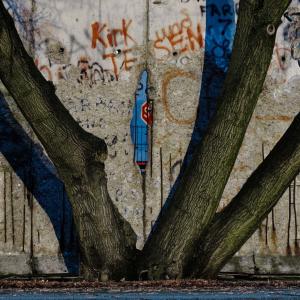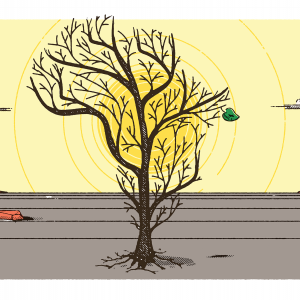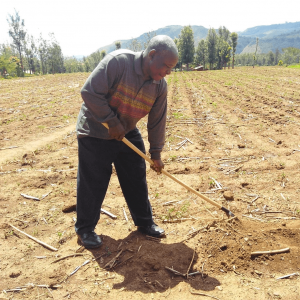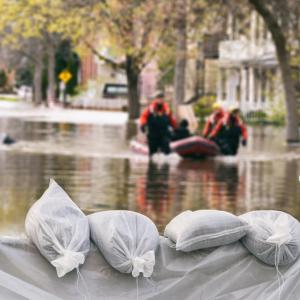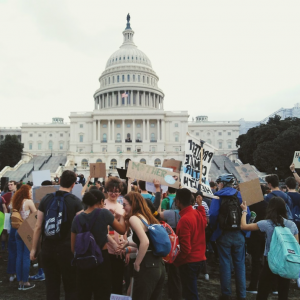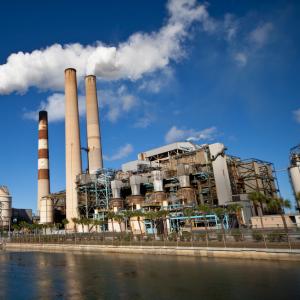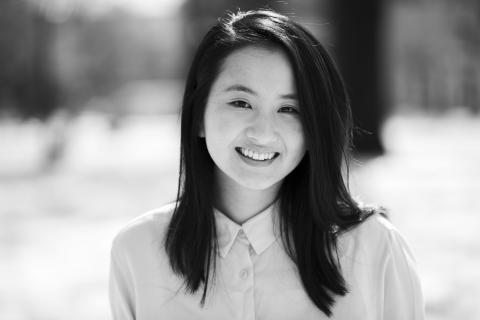
Melody Zhang (she/her) is a writer and community organizer who currently resides on the occupied territory of the Piscataway people.
Posts By This Author
It’s Time to Be the Conscience of American Politics
I believe fervently in the words of Rev. Dr. Martin Luther King Jr., who said that “the church is not called to be the master or servant of the state, but to be the conscience of the state.” In that vein, we will be neither chaplain nor sycophant to our new political leaders. Instead, we seek to be a faithful conscience, serving as a bridge-builder and offering prophetic critique (and pressure) when necessary.
Your Tired Body. Our Exploited Earth. They're Connected.
The work of unlearning racism and undoing our habit of exploitation — of the earth, of other bodies, and other neighborhoods — is long.
If We Want Climate Policy that Works, Listen to Women
We must listen to women, pay attention to on-the-ground solutions they are already creating, and earnestly follow that leadership at all levels of environmental decision-making.
Don’t Overlook the Virulence of Racism Toward Asian Americans
In this moment, Chinese and Asian American communities are facing the double stress of having to reckon with the racism and xenophobia they encounter, compounded with having to deal with the virus outbreak itself.
Climate Justice Starts Locally
On-the-ground solutions to environmental challenges are becoming the most effective and practical strategy. Cities today are leading the way on climate resilience strategies, which are specific to the city’s infrastructural, geographic, spatial and topographic makeup, through initiatives like 100 Resilience Cities and Climate Ready programs, which help cities prepare for the long-term impacts of climate change.
In An Economy of Extraction, Plant Trees
How would our world change if we let trees remind us that there exists a natural landscape that transcends the geopolitical, that their branches and roots will not be stopped by the lines drawn on a map by people with various agendas?
What I Witnessed on the Front Lines of Climate Collapse
In sub-Saharan Africa, people are really suffering—not tomorrow, but today.
THIS YEAR, THE seasonal rains in Kenya came two months late. “Even the weatherman can’t forecast the weather,” Stephen Katama, a local shopkeeper in Nairobi, told me when I traveled to East Africa in June. “We can’t tell the difference between the summer and winter here anymore.”
During the past two decades, rain in sub-Saharan Africa has increased in frequency and intensity, creating dangerously erratic patterns of rainfall and drought. A single day’s downpour may bring the amount of rainfall normally expected over a period of eight months, wreaking havoc on the livelihoods of countless subsistence farming families across Kenya and Uganda.
Sub-Saharan Africa is among the regions projected to see the worst of climate change in the coming decades. I traveled with the Climate Witness Project, hosted by the Christian Reformed Church in the U.S., to Nakuru, Kenya, and North Teso and Soroti, Uganda, to visit farming communities facing extreme shifts in weather patterns.
There’s No Debating Environmental Racism in Detroit
Thousands of activists gathered in Detroit to perform mass demonstrations on Tuesday afternoon, just hours before the opening of the second presidential primary debate. The effort, spearheaded by Frontline Detroit, a coalition of organizations made up of members deeply impacted by pollution and environmental racism, produced demands for addressing the pervasive environmental and economic injustices that have plagued Detroiters for decades.
True Climate Justice Is Impossible Without Racial and Economic Justice
As the climate crisis intensifies and crystallizes, the tangible effects of climate change today are disproportionately dispersed on both the national and global scale. Communities and entire nations who do the least to contribute to rising greenhouse gas emissions bear the enormous burden of climate disaster first and worst on their bodies and their livelihoods.
The Faith Leaders Involved in the Extinction Rebellion
Christian Climate Action played a key role in securing the protest site at Marble Arch as they arrived by a truck which was used to block traffic and was later transformed into a solar-powered stage. Rev. Sue Parfitt, 77, along with two other Christians, ensured that the truck was not removed by police by locking themselves to the underside with metal chains. Richard Barnard, a member of the U.K. Catholic Worker Movement, then climbed on top of the truck and unfurled a banner reading “tell the truth.”
It's Time for Policies That Rise to the Challenge of the Climate Crisis
As a Christian, I believe God calls us to a total and radical re-imagination and transformation of our relationship with others and the earth. We yearn for a vision of complete reconciliation for all of God’s created order. As political leaders, especially those of you grounded in faith and values, I implore you to respond faithfully and with full force to love God and neighbor by enacting just, compassionate, and transformative climate policies that rise to the challenge of the climate crisis.
Youth Leading on Climate Justice See the Interconnectedness of All Life
8-year-old activist Havana Chapman-Edwards, also known as the Tiny Diplomat, closed that day with a powerful statement on climate justice intersectionality. “I am here today because climate justice issues are not separate from other justice issues. It’s not right that wildfires, droughts and other climate disasters are being ignored. Black, indigenous, and people of color are doing the least damage to the planet but we are the ones who are paying the price first.”
The Mercury Rule Has Been Credited with Saving Thousands of Lives. The EPA Wants to Change It
In December, the EPA proposed to stop regulating hazardous air pollutant (HAP) emissions from power plants altogether under the Mercury Rule (Mercury and Air Toxics Standards), stating that it was no longer “appropriate and necessary” to do so after a limited cost-benefit analysis. Because of its imminent threat to the health of our nation, particularly people of color, women, and children, Sojourners felt called to take action on this issue.
